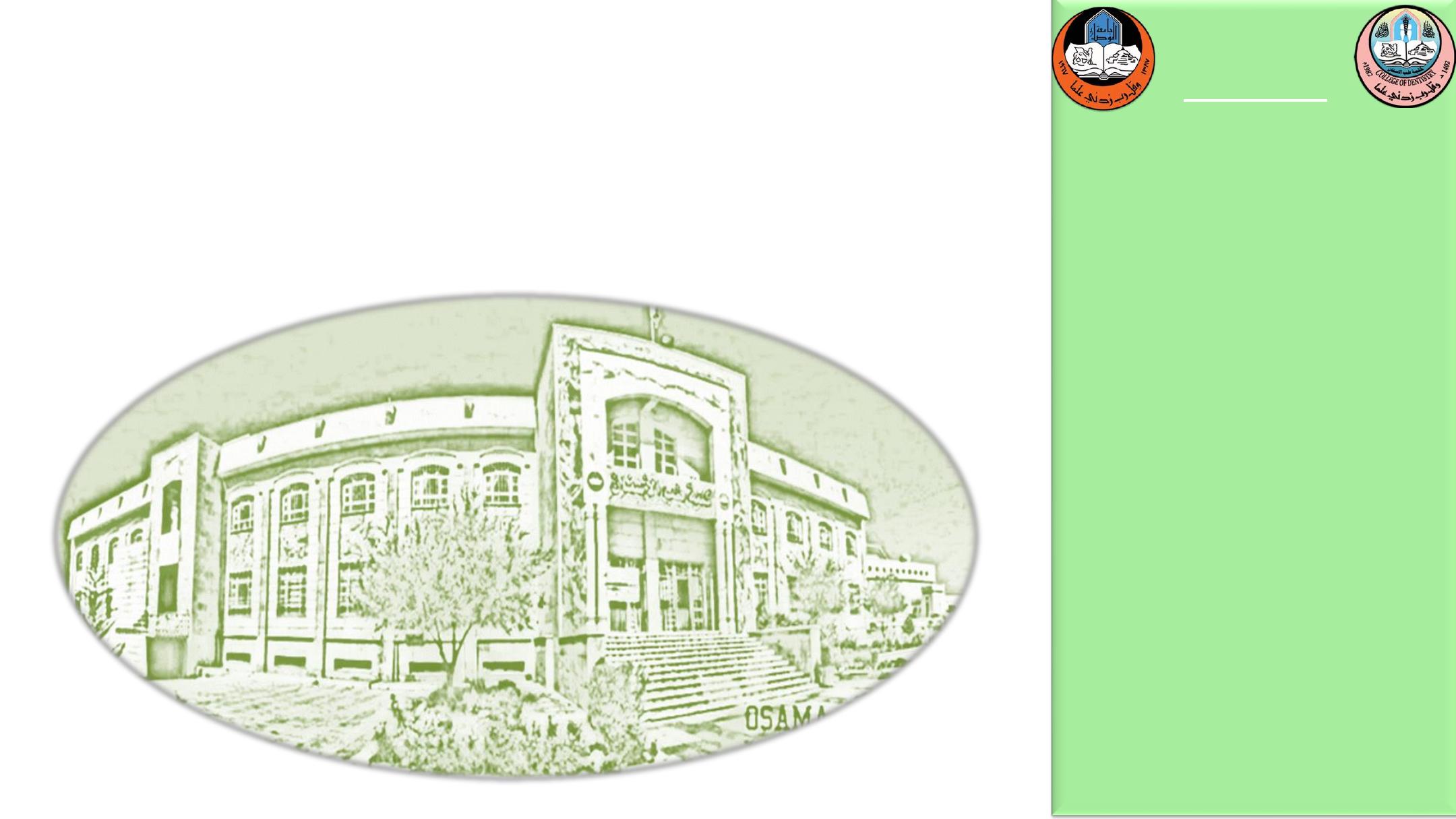
Periodontal Disease in
Children
By:
Lecturer Name in
English & Arabic
U N IV ERS ITY O F M O S UL
C O L L EGE O F D E NTIS TRY
2020-2021
Department of
Pedodontics,
Orthodontics
and Preventive
Dentistry
Department of:
HERE

U N I VE R S I T Y O F M O S U L
C O L L E GE O F D E N T I S T R Y
What is periodontal disease in children?
Periodontal disease is a serious bacterial infection. It destroys the
gums and supporting structures of the teeth. It is also called gum
disease.
What causes periodontal disease in a child?
The buildup of plaque on the teeth is the main cause of
periodontal disease. Plaque contains bacteria that sticks to the
teeth. If plaque isn’t removed, it hardens and is then called
calculus or tartar. Poor oral hygiene habits allow plaque to grow
in the mouth.

U N I VE R S I T Y O F M O S U L
C O L L E GE O F D E N T I S T R Y
Which children are at risk for periodontal disease?
Certain things may raise your child’s risk for periodontal disease.
These include:
• Certain genes
• Food stuck in the gums
• Mouth breathing, which may lead to severe drying of the gums
and teeth in the front of the mouth
• Poor diet
• Smoking and using smokeless tobacco
• Autoimmune or systemic diseases
• Diabetes
• Hormonal changes in the body, such as during puberty
• Repeated clenching or grinding of the teeth that your child can’t
control (bruxism)
• Certain medicines that can cause an overgrowth of the gums

U N I VE R S I T Y O F M O S U L
C O L L E GE O F D E N T I S T R Y
What are the symptoms of periodontal disease in a child?
the most common symptoms of gum disease:
• Red, swollen, sore gum
• Bleeding while brushing or flossing
• Gums that pull away from the teeth (receding gums)
• Loose or separating teeth that show greater than normal spacing
• Bad breath that won’t go away
• Pus between the teeth and gums
• A change in bite and jaw alignment
These symptoms may seem like other health problems. Have your child
sees his or her healthcare provider or dentist for a diagnosis.

U N I VE R S I T Y O F M O S U L
C O L L E GE O F D E N T I S T R Y
How is periodontal disease diagnosed in a child?
Your child’s healthcare provider will likely refer your child to a
dentist for evaluation and care. Your child’s dentist can often
diagnose periodontal disease with a complete history and exam of
your child’s teeth and gums. Your child may also need X-rays.
Your child’s dentist may refer your child to a periodontist. This is a
dentist with special training to treat periodontal disease.
How is periodontal disease treated in a child?
Treatment may include any or a combination of the following:
• Good dental care. Regular cleanings by a dentist can help fight
gingivitis, the mildest form of gum disease. Your child will also
need to brush and floss daily.

U N I VE R S I T Y O F M O S U L
C O L L E GE O F D E N T I S T R Y
• Deep cleaning (scaling and root planing). This treatment can
help remove the plaque and tartar under the gum and infected
tissue in the early stages of the disease. It can also smooth the
damaged root surfaces of the teeth. The gums can then reattach
to the teeth.
• Medicine. Antibiotic medicine may be put in the periodontal
pockets. Or it may be given in pill form to take by mouth.
• Surgery. When gum disease is advanced, the infected areas
under the gums need to be cleaned. The tissues may also be
reshaped or replaced.

U N I VE R S I T Y O F M O S U L
C O L L E GE O F D E N T I S T R Y
How can I help prevent periodontal disease in my child?
Good dental habits can prevent gum disease. Make sure your
child:
• Brushes his or her teeth twice a day
• Uses a toothbrush that is the right size based on your child's
age and size
• Flosses daily
• Sees the dentist regularly
• Eats healthy foods, limiting those high in sugar and starch

THE END
U N I VE R SI T Y O F M O SU L
C O L L E GE O F D E N T I S T R Y
2020-2021
